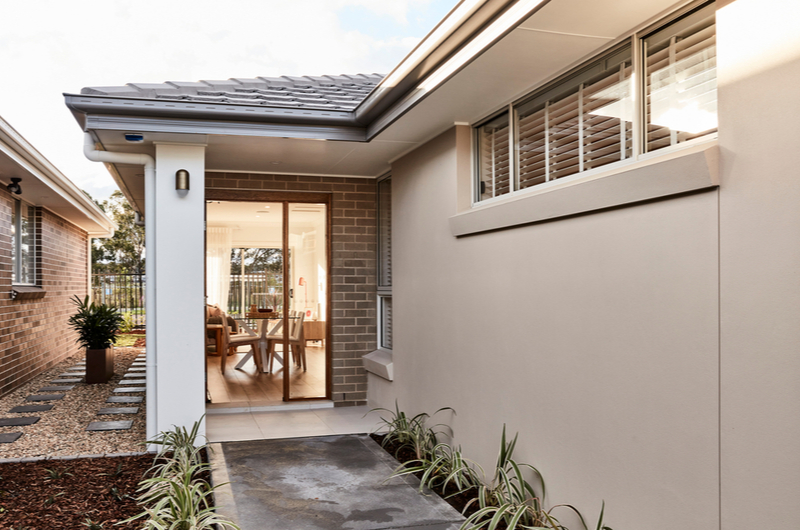Find The Best Contractor For Your ADU Project
An accessory dwelling unit (ADU) contractor provides specialized types of services. Read tips on how to find the best contractor for your ADU project now.
Word-of-mouth is a reliable resource when researching contractors for your home construction projects. An accessory dwelling unit (ADU) contractor deals with a specialized type of construction. Therefore, you might have to put in a little more research to make sure you find the best contractor for your ADU project.
Multiple reliable online resources are available to help you locate the best ADU contractor for your needs. Different types of ADU projects are also possible. Understanding the differences between constructed and pre-fabricated ADU projects helps you choose the best contractor for the job. Read ahead for helpful tips on how to find the best contractor for your ADU project today.

Accessory Dwelling Unit (ADU) Construction Projects - Understanding the Basics
An accessory dwelling unit (ADU) is essentially a smaller home. The units are constructed on your property or lot and are either attached or detached from your main building structure. Primary uses for ADUs include accommodating long-term guests or family members with additional living space or the creation of a rental-income residence. ADUs are different than basic additions. An ADU is a self-contained living unit with all the same regulated and required fixtures and utility accommodations as a normal single-family unit. An ADU is typically smaller than a normal single-family residential building, however, but this is not necessarily always the case.
Construction of an ADU requires several specific legal processes and specific approvals to proceed. State building codes, zoning laws and fire and earthquake code requirements all apply. The legality of your ADU’s construction and its eventual approval are largely in the hands of your town or city planning office. Municipality zoning laws and requirements are complicated to understand for most people without experience in the construction industry. Hiring a qualified ADU contractor is vital to the success of your project’s result. Prior to hiring an ADU contractor, however, you must first get your project approved.
ADU Legalities
To get your ADU project legally approved you must begin with its practicality (or viability) and design. Is your ADU project viable? Assessing the answer to this question is part of a pre-construction process, which is vital to the long-term success of your project. Practicality and viability both apply to whether your ADU receives permission to be built or not. Design applies to drafting the ideas you have for your project on paper. The design and permitting processes are somewhat enmeshed. Zoning permission is only attainable after you have your ADU design drafted to a certain degree. Completely finalizing your design in preparation for a contractor is only possible to do after you have your permits approved. Blueprints and permit sets must be created, which include floor and structural plans along with whatever mechanical, plumbing and electrical components are involved. Before all this happens, it is also necessary to determine if you are submitting permit applications for a pre-fabricated or constructed ADU.
Pre-Fabricated vs. Constructed ADUs
Two primary types of ADUs exist today. These types affect budget, time-in, materials needed and zoning. Understanding the similarities and differences between pre-fabricated and constructed ADUs is vital to your entire process from pre-construction planning to the actual installment process.
Constructed ADU
A constructed ADU, also referred to as a stick framing or custom or conventional ADU, involves purchasing all required lumber at industry-standard measurements and building it from the ground up on-site. A constructed ADU is referred to as conventional because this centuries-old process is still the most common ADU-assembly process used today. Every purchased piece of lumber for the ADU is measured to specific dimensions for the dual purposes of manifesting the design as created and adhering to all applicable codes. The success of any constructed ADU process relies heavily on having enough manpower to complete the job on time, on (or under) under budget and in adherence to the designer’s vision. The customized dimensions require multiple specialized cuts, fasteners, and installation processes. A constructed ADU site also requires the presence of a civil engineer to supervise all aspects and activities pursuant to the construction process. This includes multiple inspections, which are conducted in stages from the very beginning phases of construction through to completion.
Pre-Fabricated ADU
While a pre-fabricated ADU is not as customizable as a constructed ADU, it offers an entirely different set of benefits. A pre-fabricated ADU, also referred to as a pre-fab or prefab ADU, is still constructed based on your designs. A prefab ADU is built off-site, however, and transported to your property where it is subsequently attached to your main building or residence or situated on your lot where designated. The main benefits offered by prefab ADUs include:
-
Less construction-traffic and noise disrupting your daily routines.
-
Budget is known in advance.
-
Generally, more cost-effective.
-
Some pre-constructed prefab ADUs are orderable without requiring design input from you (pending zoning approval).
Top Rated Prefabricated ADU Providers:
If you are looking to purchase a per-fabricated ADU, your best options are Mighty Buildings or United Dwellings. Mighty buildings offers five different prefabricated ADUs, split into two general categories: Mighty Mods and Mighty House. Mighty Mods are the typical ADU formats, meant to be additions to your existing home. The Mighty Studio has 350 square feet of floor area and is exactly what is advertised, a studio addition with a single restroom. Starting at $204,000, this is a perfect small addition for a home. The Mighty Duo is double the size and has one or two bedrooms, with a single bathroom for only $70,000 more than the Mighty Studio. United Dwellings offers three different backyard ADUs, The Studio, The One Bedroom, and The Two Bedroom. At 360, 328, and 647 square feet respectively, these units are great additions to any home.
ADU Construction - Typical Costs and Timelines
A lot goes into the building of an ADU because it is serves as a fully functional (albeit smaller) home. Therefore, an ADU requires the same care and budget considerations given to a larger home. Budgeting for your ADU also depends on its purpose. Will your ADU be occupied by family or paying tenants? Either way, most ADUs are priced based on dollars per-square-foot. Because ADUs vary greatly in size, shape and floor plans their prices also vary from project-to-project. An average ADU of 800 square-foot built at $200 per square foot costs $160,000. Design fees cost between $9,000 and $12,000 depending on the complexity of the ADU. Permit fees cost between $4,000 and $8,000 on average.
Timeline
From start to finish an average ADU project requires six to twelve months of time. This begins with pre-construction and design phases, lasts through permit acquisition and until the completion of the project. Typical factors applicable to any building structure construction project also impact the timeline. Such factors include municipality regulations, weather, experience-and-skill level of the contractor and if your ADU is prefab or constructed.
Find an ADU Contractor Near You
Numerous online resources are available to help find the best ADU contractor for your project fast. Because ADU construction is such a specialized industry, certain websites and resources are dedicated to finding ADU contractors around the country. AIQHome is one such resource, with directory listings for ADU specialists in every U.S. state. Home Builder Digest is another resource deigned to help you find the best ADU contractors near you today. Additional ways to locate ADU contractors online in 2021 include:



